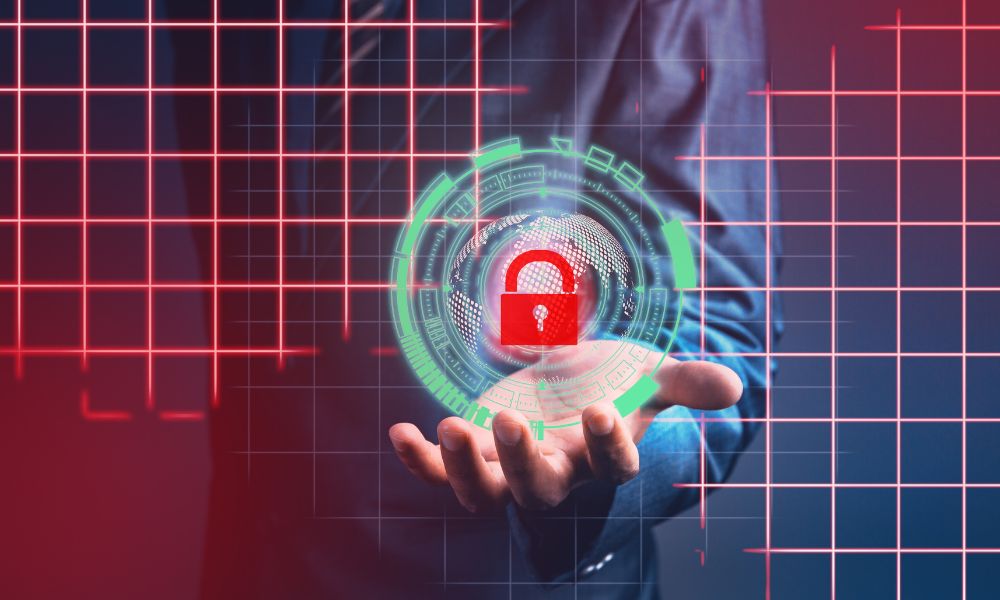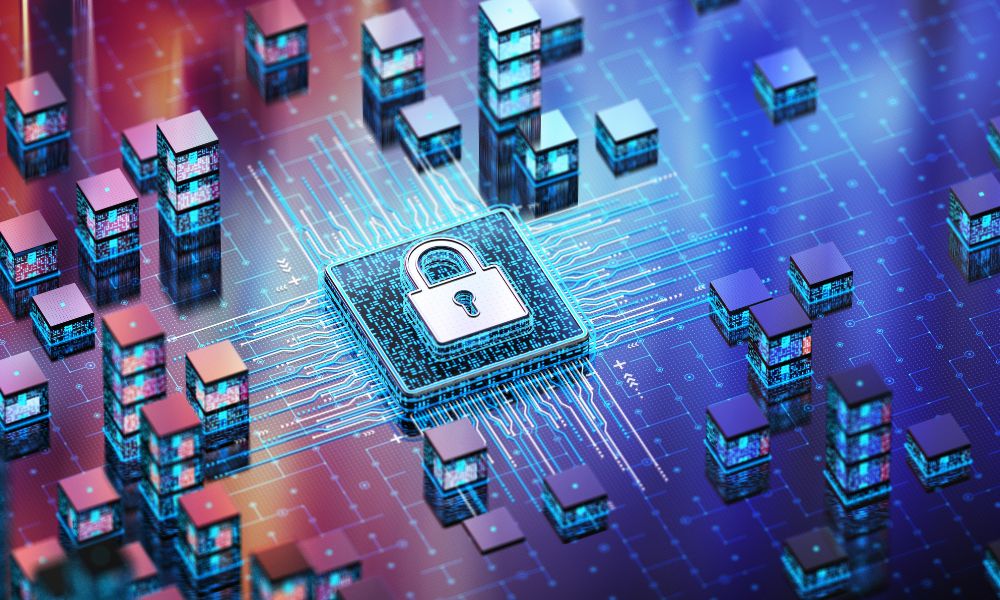Starting a cybersecurity business in the UAE means tapping into a rapidly expanding market driven by digitalisation and an increase in connected devices. There’s a growing demand for cybersecurity solutions, especially in sectors like retail, which handle vast amounts of sensitive data.
Understanding and complying with the UAE’s robust legal frameworks, such as the Federal Decree-Law No. 5 of 2012 on Combating Cyber Crimes, will better position you for success. Additionally, key steps include selecting the right business structure, obtaining the necessary licences, and protecting intellectual property.
By investing in high-quality IT infrastructure and skilled professionals, your cybersecurity business can thrive in this dynamic environment and meet the increasing need for robust security measures.
The UAE Cybersecurity Market
Current Market Trends and Opportunities
The cybersecurity market in the UAE is expanding significantly.
The market size is set to reach USD 1.07 billion by 2029, up from an estimated USD 0.59 billion in 2024.
This growth, at a Compound Annual Growth Rate (CAGR) of 12.72%, is driven by rapid digitalisation and an increase in connected devices.
These technological advancements for business trends have created new opportunities for cyberattacks.
The COVID-19 pandemic has further accelerated this trend, with a more than 250% increase in cyberattacks during this period.
The retail industry has become a prime target due to the large amounts of sensitive customer data it handles. As a result, there’s a growing demand for cybersecurity solutions in this sector.
Key Regulatory Frameworks to Consider
The UAE has a strong legal framework for cybersecurity, including federal laws, regulations, and guidelines. Key legislations include Federal Decree-Law No. 5 of 2012 on Combating Cyber Crimes, Federal Law No. 3 of 2003 (Telecommunications Law), and the NESA Information Assurance Standards.
These laws cover various aspects of cybersecurity, data privacy, and information security. The UAE Computer Emergency Response Team (aeCERT) also plays an integrall role in executing the UAE’s cybersecurity strategy. If you’re operating a business in the UAE, it’s important to comply with these laws to avoid regulatory penalties and reputational damage.
Major Cybersecurity Threats in the Region
The UAE has seen a surge in cyberattacks, with ransomware and phishing being the most common forms. The risk of cybersecurity failure is among the top five concerns for the UAE, especially given the country’s focus on becoming a global hub for business and innovation.
This digital transformation is attracting increasingly sophisticated cyberattackers. The existing cyber workforce is struggling to keep up with basic security efforts. There’s a shortage of cybersecurity professionals, limiting the nation’s ability to manage the security of its cloud services and digital assets.
Target Industries for Cybersecurity Services
The retail industry is a significant target for cybersecurity services due to the large amounts of sensitive customer data it handles. Many retailers are moving their operations to the cloud to reduce costs and improve efficiency, increasing the risk of cyberattacks.
Therefore, there’s a growing demand for cybersecurity solutions in this sector. Additionally, as services move to the cloud, organisations in the UAE need to ensure that cybersecurity follows. This need for robust cybersecurity measures presents a significant opportunity for cybersecurity businesses.
Business Setup and Legal Considerations
Choosing the Right Business Structure
When starting a cybersecurity business in the UAE, selecting the appropriate business structure is the first big decision you’ll need to make. The UAE offers a dynamic and business-friendly environment, but navigating its various business structures can be complex.
The Limited Liability Company (LLC) is a popular choice, especially for those looking to engage with the local market. Recent legal changes now permit foreign investors to own up to 100% of the company. While no minimum capital requirement exists for an LLC, the capital should be sufficient to meet the company’s goals. Another option is setting up one of the UAE’s free zones, which offer incentives like tax exemptions and full foreign ownership. However, free zone companies cannot directly trade within the UAE market and must appoint a local distributor.
Another alternative is to set up a branch office. This is an extension of a foreign company and can conduct business similar to the parent company’s, but it must adhere to specific regulations.
Licensing Requirements for Cybersecurity Firms
After selecting your business structure, the next step is obtaining the necessary licences. The UAE issues various categories of licences, including professional, commercial, and industrial and trade licences. A professional license is most suitable for a cybersecurity business, covering services that involve specialised knowledge or skills.
The Dubai Department of Economic Development (DED) has introduced new trade licence activities specifically for companies offering cybersecurity-related services. These services include comprehensive professional consultancy to help organisations prepare for, avoid, and protect themselves against cyber threats.
The cost of a cybersecurity license in Dubai can range between 12,000 and 30,000, depending on factors such as license and visa fees, personnel and insurance costs, and office location.
Intellectual Property Protection in the UAE
When starting a cybersecurity firm, protecting your Intellectual Property (IP) is essential. The UAE’s Ministry of Economy is responsible for registering and protecting IP, including trademarks, copyrights, and patents.
The UAE has significantly improved its IP rights enforcement regime, enhancing business protections. As a cybersecurity business, safeguarding your proprietary technologies and methodologies is crucial.
The UAE is also a member of several treaties administered by the World Intellectual Property Organisation (WIPO), further enhancing IP rights protection.
Compliance with UAE Cyber Laws and Regulations
Lastly, compliance with all local laws and regulations is vital for operating a cybersecurity business effectively. The UAE’s legal framework for cybersecurity is robust and comprehensive, and compliance is key to successful operation.
As cyber-attacks become more sophisticated and prevalent, the UAE is positioning itself as the region’s leading technology centre. Therefore, understanding and adhering to the UAE’s cyber laws and regulations is not just a legal requirement but also a business necessity.
Developing Your Cybersecurity Solution Offerings
Core Services to Consider
When you’re launching a cybersecurity business in the UAE, you need to consider the primary services you’ll provide. A significant part of this is setting up a robust Security Operations Centre (SOC). The SOC acts as the hub of your cybersecurity operations, amalgamating and coordinating your security tools, practices, and incident response.
This amalgamation bolsters preventive measures and strengthens security policies. It also speeds up threat identification and makes the management of security incidents more efficient and cost-effective.
Another key service to consider is outsourcing. By outsourcing SOC services, organisations gain access to a dedicated team of cybersecurity specialists. This eliminates their need to invest in in-house infrastructure and technology, significantly reducing their costs.
Building a Competitive Service Portfolio
You need to invest in advanced security technologies to build a competitive service portfolio. Taking a proactive stance towards cybersecurity ensures that your business is always one step ahead of potential threats. Regular risk assessments should be carried out to identify and address vulnerabilities within your organisation’s infrastructure and operations.
A competitive service portfolio also includes a robust and frequently updated cybersecurity training programme. This programme educates employees about the importance of security in their daily roles and how they can contribute to it. It also minimises mishaps that might damage a company’s reputation and limit its growth potential.
Staying Ahead with Continuous Innovation
Staying ahead in the cybersecurity business requires continuous innovation. This involves fostering an organisational culture that views security as a critical business strategy and innovation component. It also means integrating cybersecurity oversight into broader oversight and value-creation activities.
Innovation teams should work closely with security teams to ensure new projects are both innovative and secure. Regulatory compliance is another factor that organisations must consider, ensuring that innovations comply with all legal requirements.
Partnerships and Collaboration for Enhanced Capabilities
Partnerships and collaboration can significantly boost your cybersecurity capabilities. By adopting a programmatic approach to cybersecurity portfolio oversight, you can prevent value destruction, meet investor expectations, and increase portfolio valuations.
Sharing data, insights, benchmarks, and other resources with portfolio companies can help them right-size their cybersecurity investments. Establishing processes for reporting portfolio companies’ cybersecurity to managing partners, the board, investors, regulators, and other stakeholders is also important.
Promoting a culture of security within the organisation encourages employees to adopt a proactive stance towards security, including reporting potential threats and suggesting improvements. This collaborative approach can significantly enhance your cybersecurity capabilities and give your business a competitive edge.
Establishing Operations and Infrastructure
Choosing a Location and Setting up Your Facility
Your first step in setting up a cybersecurity business in the UAE is to pick a suitable location. Many firms in this sector are drawn to the Meydan Free Zone due to its attractive benefits, including a 0% tax rate and the chance for 100% foreign ownership.
Setting up your company can be a relatively quick process. You can register your business with the DED in less than two hours. The overall setup usually takes four to five days, not counting additional government certifications.
Investing in High-Quality IT Infrastructure
Investing in top-notch IT infrastructure is a must for your cybersecurity business. The UAE is fast becoming a technology hub.
By the end of 2024, it’s expected to account for 35% of the regional market and generate USD 85 billion in revenue.
New technology and increasing cyber threats to businesses and individuals drive this growth. This puts cybersecurity in high demand. Therefore, a robust IT infrastructure will enable you to provide excellent services and position your business as a reliable player in the market.
Hiring Skilled Cybersecurity Professionals
The cybersecurity industry is heavily regulated. Qualified and expert professionals are needed to handle all government-related work. The demand for cybersecurity is significantly increasing to protect data and information.
Professionals who can configure cybersecurity settings, offer training, and prevent malicious attackers from entering company systems are in high demand. So, hiring skilled cybersecurity professionals is a key step in setting up your business.
Implementing Internal Security Practices
Putting internal security practices into place is fundamental to running a cybersecurity business. Cybersecurity is the defensive application of technologies, computers, devices, networks, programs, and data from cyber-attacks. The five pillars of cybersecurity are confidentiality, integrity, availability, authenticity, and non-repudiation of user data.
Your business should have strong internal security practices that uphold these pillars. This is to protect your data, networks, devices, and businesses from cyber threats. These threats can include malware, phishing, ransomware, vulnerabilities, insider attacks, IoT attacks, DDoS attacks, supply chain attacks, cloud security risks, and man-in-the-middle attacks.
By implementing strong internal security practices, your business will be better equipped to keep businesses safe from cyber threats and attacks.
Marketing and Client Acquisition Strategies
Identifying Your Target Market Segments
In the UAE, the urgency for robust cybersecurity measures is evident due to the increasing frequency and high costs of cyberattacks. This creates a promising market for cybersecurity firms.
Understanding the distinct needs of various market segments is imperative. For example, aligning your services with the UAE Cybersecurity Strategy 2024 can attract businesses aiming for compliance.
Over 60% of Dubai companies have recently faced cyberattacks, so solutions are clearly needed to enhance their security posture and response capabilities.
Effective Digital Marketing Techniques
In today’s digital landscape, platforms like Instagram and Facebook are invaluable for marketing. They provide direct access to potential clients and allow you to highlight your services effectively. For a cybersecurity firm, this could mean showcasing the impact of your solutions through engaging visuals.
Interactive elements like polls and quizzes can engage your audience and provide insights into their cybersecurity concerns. Leveraging analytics tools on these platforms can help you optimise your posting schedule for maximum engagement.
Networking and Building Industry Relationships
The cybersecurity sector in the MENA region thrives on collaboration and innovation. Staying updated with the latest technologies and gaining insights from industry leaders are essential.
Events such as GISEC Global and World Cybercon META annually offer excellent opportunities for networking, knowledge exchange, and demonstrating your technological advancements. These events can help establish your firm’s industry presence and foster relationships that may lead to partnerships or new clients.
Maintaining Customer Satisfaction and Trust
Creating a cyber-resilient culture involves more than just advanced technology; it requires ongoing education and vigilance. Regular updates on emerging threats and interactive training sessions can keep your team prepared.
Adhering to cybersecurity laws and data protection regulations ensures compliance and builds customer trust. Regular audits and assessments can identify and address vulnerabilities, enhancing client satisfaction and confidence.
In case of a breach, promptly reporting to authorities shows your commitment to transparency and accountability, further strengthening customer trust.
Bringing it All Together
Establishing a cybersecurity firm in the UAE encompasses a myriad of facets, from understanding the market opportunities and legal frameworks to tailoring your service offerings and building solid infrastructure. Along with the technical and operational aspects, developing a strong client acquisition strategy and maintaining customer trust is also imperative.
As the UAE positions itself as a leading technology hub, the call for cybersecurity is more potent than ever. Embrace the opportunity and navigate the exciting journey of setting up your cybersecurity business in the UAE with enthusiasm, diligence, and commitment to make a mark in this growing industry.




